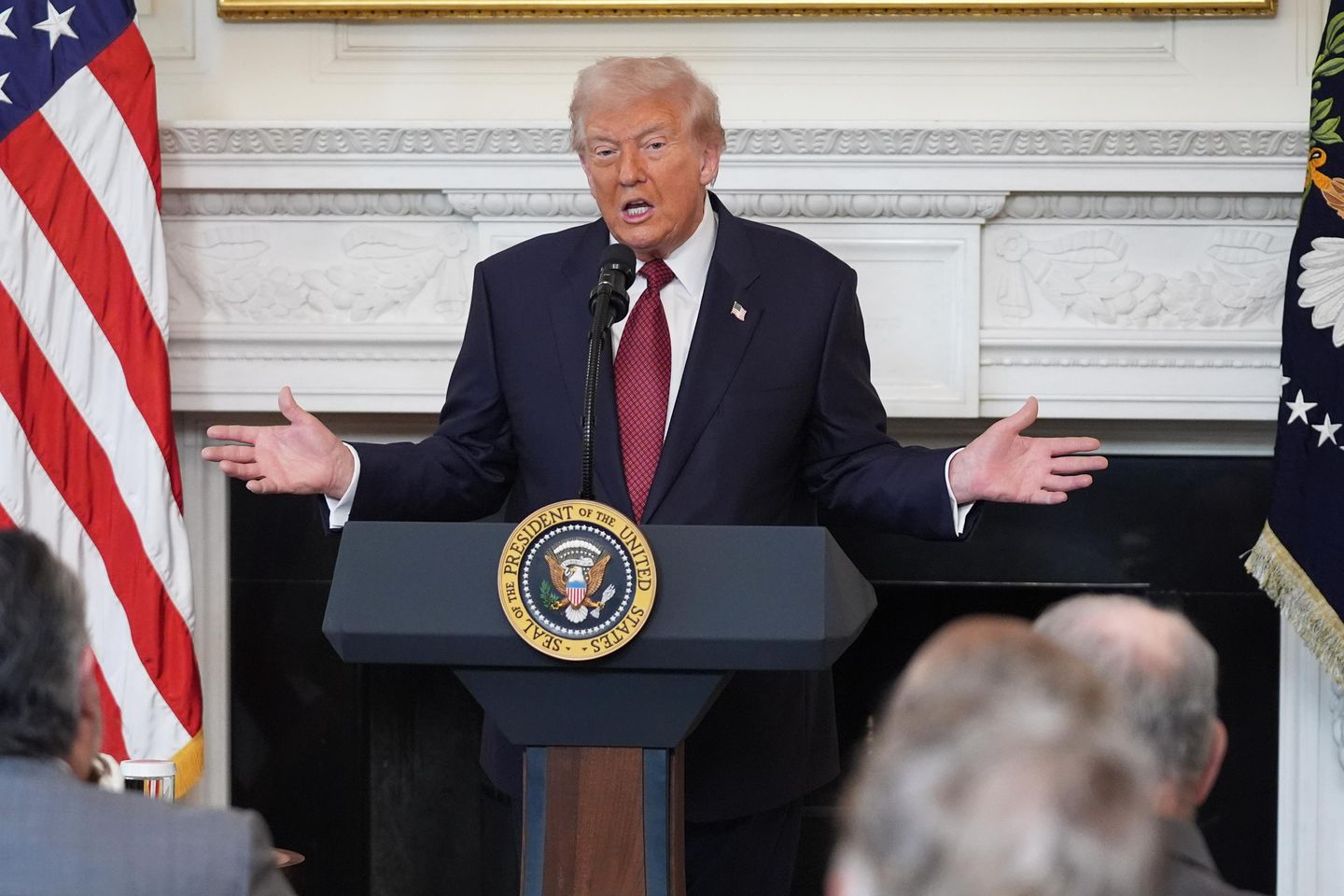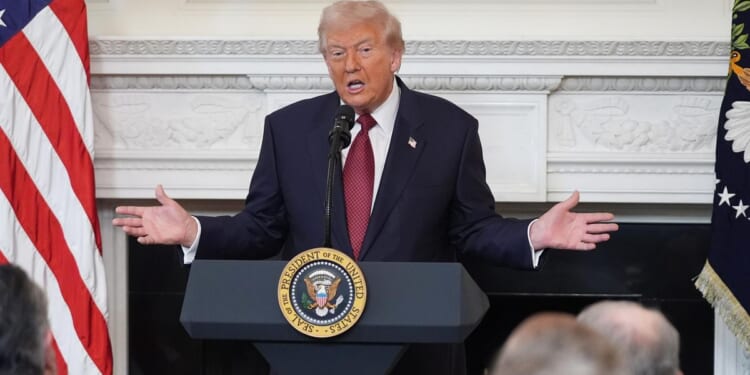
President Trump’s passionate push for Senate Republicans to scrap the filibuster as a way to end the shutdown and pass GOP priorities swayed some senators, but not nearly enough.
At least a dozen Senate Republicans said Wednesday after a breakfast meeting at the White House where Mr. Trump made his case that they are opposed to eliminating the legislative filibuster.
“The role of a senator is not just to advance good ideas. The role of a senator is to kill bad ideas,” said Sen. John Kennedy, Louisiana Republican. “And when you’re in the minority — we’re not now, but we could be someday — it’s important to have a filibuster.”
The president’s main argument is that Democrats will “immediately” end the filibuster if they retake control of the Senate, and Republicans should do it first to enact their priorities.
It would take 51 votes to end the filibuster using the “nuclear option,” in which a simple majority can override the normal requirement for a two-thirds vote to change the chamber’s rules.
Senate Majority Leader John Thune said while Mr. Trump is “obviously very influential” and Republicans want to be “good partners and help him implement his agenda,” the votes to end the filibuster aren’t there.
“I just know where the math is on this issue in the Senate, and it’s just not happening,” the South Dakota Republican said.
Sen. Thom Tillis, North Carolina Republican, said there are 15 or more GOP senators firmly opposed to eliminating the filibuster. He is one of them.
“It would create a sequence of events here where our country and this institution would bear no resemblance to what it does today,” he said.
Still, Mr. Tillis said the president would not be doing his job if he weren’t asking to scrap the filibuster, “because that’s the most expedient way to get his priorities done.”
Mr. Trump repeatedly called on Senate Republicans to end the filibuster during his first term but had been mum on the subject during his second term until last week, as the impacts of the government shutdown worsened.
He had been making his case on social media over the past week before issuing a personal appeal to Republican senators over breakfast Wednesday to “do what they have to do” to end the shutdown and prevent future Democratic blockades.
“Terminate the filibuster; it’s the only way you can do it,” he said. “And if you don’t terminate the filibuster, you’ll be in bad shape. We won’t pass any legislation.”
The filibuster is a tool in the Senate, most often used by the minority party, to block or stall legislation. It requires 60 votes to end a filibuster, which forces bipartisan support because it’s rare for either party to have a filibuster-proof majority.
Senate Democrats have used the filibuster to block a House-passed stopgap spending bill to fund the government through Nov. 21, voting 14 times against allowing the measure to come up for debate. They are demanding an extension of Obamacare premium subsidies set to expire this year.
Mr. Trump said government funding extensions “are supposed to be easy” and if Democrats won’t agree to that, “they won’t do any bill, even a simple bill.”
The president’s plea caused a notable shift in some senators’ positions, in particular Sen. John Cornyn, who has long been opposed to ending the filibuster. The Texas Republican said Wednesday that he’d support a limited filibuster exemption for spending bills.
“We haven’t been able to do regular appropriations for a while, and now, with the sort of ‘Schumer shutdown,’ having a willful minority being able to shut down the government anytime they want to, obviously, we can’t tolerate that,” he said. “So I think that calls for some changes.”
Mr. Cornyn is facing a tough Republican primary next year against Texas Attorney General Ken Paxton and Rep. Wesley Hunt, both of whom said they support fully eliminating the filibuster.
Mr. Hunt accused Mr. Cornyn of playing “political football” and said his new stance on the filibuster still falls short.
“President Trump wants to eliminate the filibuster, not implement carveouts,” he said on social media.
Mr. Trump said Republicans will be able to pass long-stalled priorities if they end the filibuster. He made a particular push for legislation to make elections “secure and safer” by ending mail-in voting and requiring voters to show identification.
He said Democrats want to scrap the filibuster so they can pass partisan measures to expand the Supreme Court and make Puerto Rico and the District of Columbia states, giving Democrats four more senators.
Sens. Tommy Tuberville, Alabama Republican, and Ron Johnson, Wisconsin Republican, said they found the president’s arguments convincing and would support ending the filibuster.
“Let’s not be schmucks,” Mr. Johnson said, arguing Republicans “better beat [Democrats] to the punch and act while we can pass legislation for the benefit of the American public.”
Sen. John Hoeven, North Dakota Republican, said the president “made good points” but he hasn’t changed his mind about preserving the filibuster.
“Democrats have had control of the House, the Senate and the presidency more than Republicans,” he said. “So from a conservative perspective, over time, the filibuster has been important.”
Even Sen. Mitch McConnell, Kentucky Republican and former majority leader, broke from his tradition of not answering reporter questions in the Capitol to shut down Mr. Trump’s suggestion to end the filibuster.
“No, we’re not going to do that,” he said.
The pushback was not unexpected, as Mr. Trump acknowledged his pitch may not sway enough Republicans to nuke the filibuster.
“I’m going to go by your wishes; you’re very smart people, we’re good friends,” he said. “But I think it’s a tremendous mistake. It would be a tragic mistake, actually. It’s time.”
• Mallory Wilson contributed to this report.











